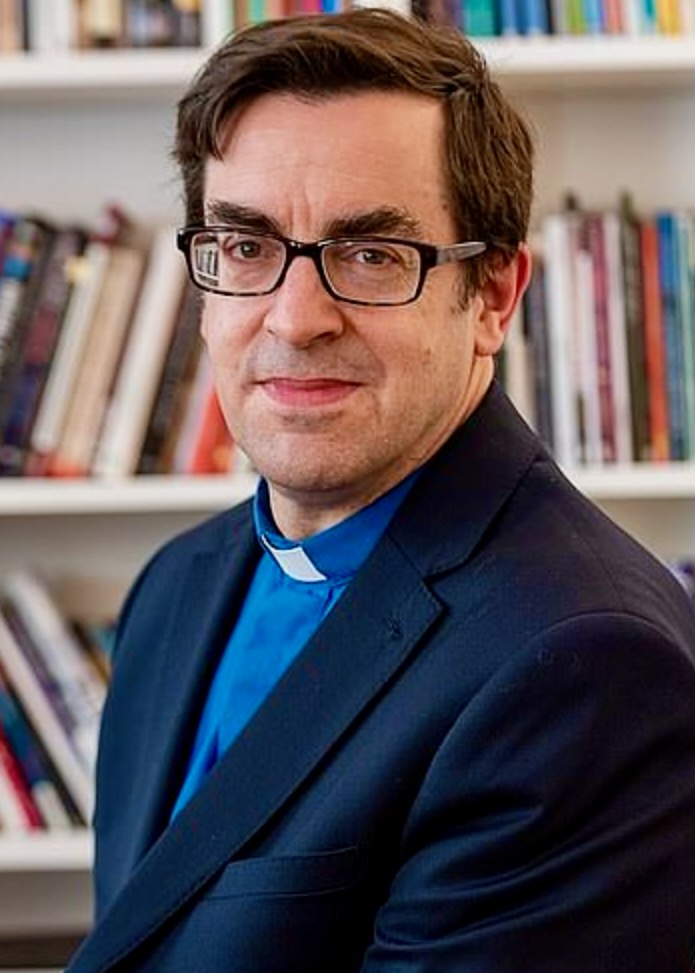I have been the victim of religious discrimination within the Church of England. Because of a sermon delivered in 2019, I am being treated as a safeguarding risk. I don’t know why, because they have so far failed to tell me exactly what the problem is, but it appears to be because my sermon upheld the Church’s own teaching on marriage. I was reported to secular safeguarding authorities, but they have all cleared me. Only the Church stands out against the acceptability of the Church’s own beliefs. In an effort to get this taken seriously, I made a formal complaint to the Archbishop of Canterbury about my treatment by the Bishop of Derby, Libby Lane, who bears “ultimate responsibility” for all safeguarding in her diocese. After much back and forth over more than two years, no action is to be taken.
I have suggested that what has happened is a whitewash. That’s very easy to say when you don’t get the answer for which you were looking. So some explanation is in order, because there are various details which are at least unsatisfactory. Space only allows a few “low-lights”.
The Church’s leadership has an accountability deficit
Firstly, there is Justin Welby’s involvement – or lack thereof. My original complaint underwent a preliminary scrutiny, which broke it down into thirteen headings. Taking each separately, rather than seeing it in the round, Mr Welby dismissed the complaint. I appealed that, and Gregory Jones KC, acting for the President of Tribunals (the Church’s most senior legal officer), found that the Archbishop was plainly wrong on nine of the headings, a ruling running to 98 paragraphs on 33 pages. “Plainly wrong” is a very high bar, much higher than just “I would have reached a very different conclusion.” In legal speak it means no reasonable person could have reached that conclusion. This suggests that the Archbishop was acting from something other than a rational evaluation of the case. Ouch.
Or take the fact that my complaint included an allegation that this was a safeguarding matter. The way Mrs Lane had treated me was abusive. The Archbishop has a clear legal duty to pass any safeguarding complaint on to the National Safeguarding Team (NST). He did not do so. Hmm.
Or consider that the complaints process allows the Archbishop to order an attempt at conciliation, with a professional mediator, with no blame attached. Did a man who every day wears the Cross of Nails, a symbol of the work of reconciliation, not think about this as an option, even after he had acknowledged that the safeguarding processes had not been followed? He has done valuable work on reconciliation in areas of armed conflict around the world. Would this much simpler matter in his own province not be suitable for such an approach. But no, dismiss, and then later no further action, were his chosen approach.
And beyond the Archbishop, it seems to me that there is evidence that they may have been quiet words in back corridors. When Mr Jones KC judged that the Archbishop had been wrong in nine areas, he ordered that the case should be sent for formal investigation, because “Due to the nature and the likely legal issues which may arise, I do not consider it would be expedient to refer the matter back to the Archbishop.” Not a vote of confidence in the Archbishop. But then just four days later, a revised decision came, referring the complaint back to Mr Welby after all. No explanation was given. Mr Welby then ruled no further action be taken despite acknowledging serious failings, so I appealed again, and Mr Jones again ruled that he had been plainly wrong, saying “the present case in my view is egregious and the error gross.” But only on four counts survived the “plainly wrong” test this time (65 paragraphs, seventeen pages). These were referred for formal investigation, with still no attempt at conciliation, but I had mysteriously lost five areas of complaint.
When the formal investigation was completed, I was told by the investigating officer that it had been passed to the Deputy President of Tribunals. But the decision that here was no case to answer came from the President of Tribunals, Dame Sarah Asplin. It came in at seventeen paragraphs on just seven pages. Was the change because the Deputy President was minded to order a full disciplinary tribunal hearing of the complaint, and this could not be allowed?
And with such a short ruling, I simply can’t see that the matters have ben dealt with properly. When I put this to Dame Sarah, with clear reasons why she should reconsider, especially where she had not taken account of the rulings her colleague Mr Jones had already made, the answer came that it was not possible for decisions to be changed. Oddly, that hadn’t applied before.
I’ll give one example, though there are many. In answer to my complaint that I have never been told what the safeguarding concern is, Dame Sarah says that, “It is clear that the Complainant was fully aware of the nature of the allegations prior to the meeting [with a safeguarding officer].” I find that astonishing. But here’s the thing: Mr Jones KC ruled that when the safeguarding Core Group met to discuss my case, they didn’t indicate what the allegation was. He says it repeatedly, for example: “[T]he Complainant in this case is entitled as a matter of fairness to have explained exactly what he has said which justifies this conclusion [that there is a safeguarding concern]. As matters currently stand, in my judgement the findings of the core group do not meet that basic requirement” or “it is not properly explained by the core group to the Complainant how the ongoing concerns related to the definition of “safeguarding” in the Guidance.” So, which is more likely? Either the nature of the allegations was never explained to me (since there was nothing which actually meets safeguarding criteria), or they were explained at some unspecified time in 2019, but by the June 2021 meeting the safeguarding team itself had forgotten what they were.
So, in an unprecedented move, in a judicial review I’m challenging the failure of the Church of England to run safeguarding properly. The Church’s leadership has an accountability deficit. Maybe my case will jolt them out of their complacency. I’m not holding my breath.
“Plainly wrong” leaves them unmoved. More likely will be whitewash upon whitewash upon whitewash, at least until the Second Coming, and maybe even after that, if they could.



